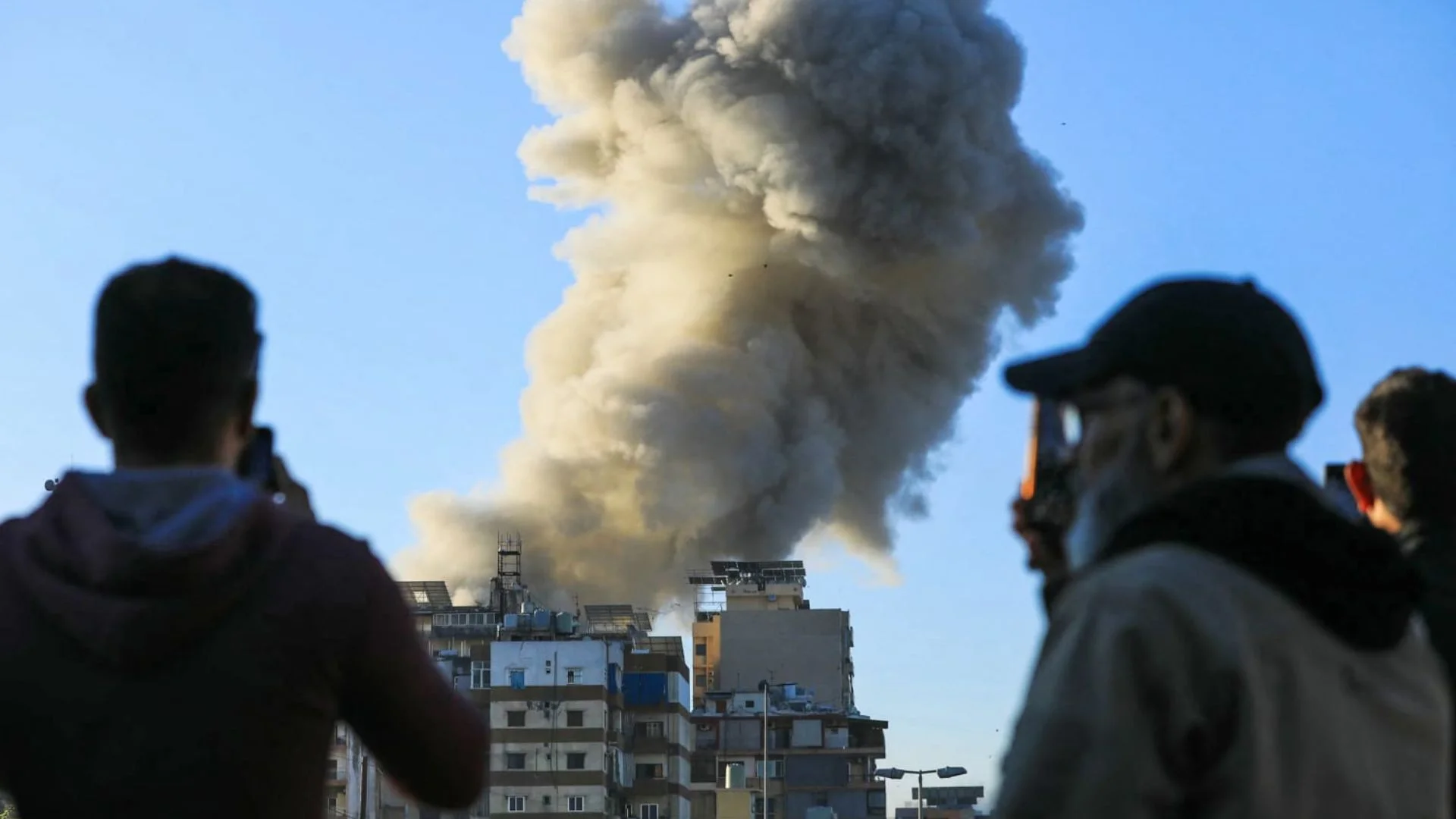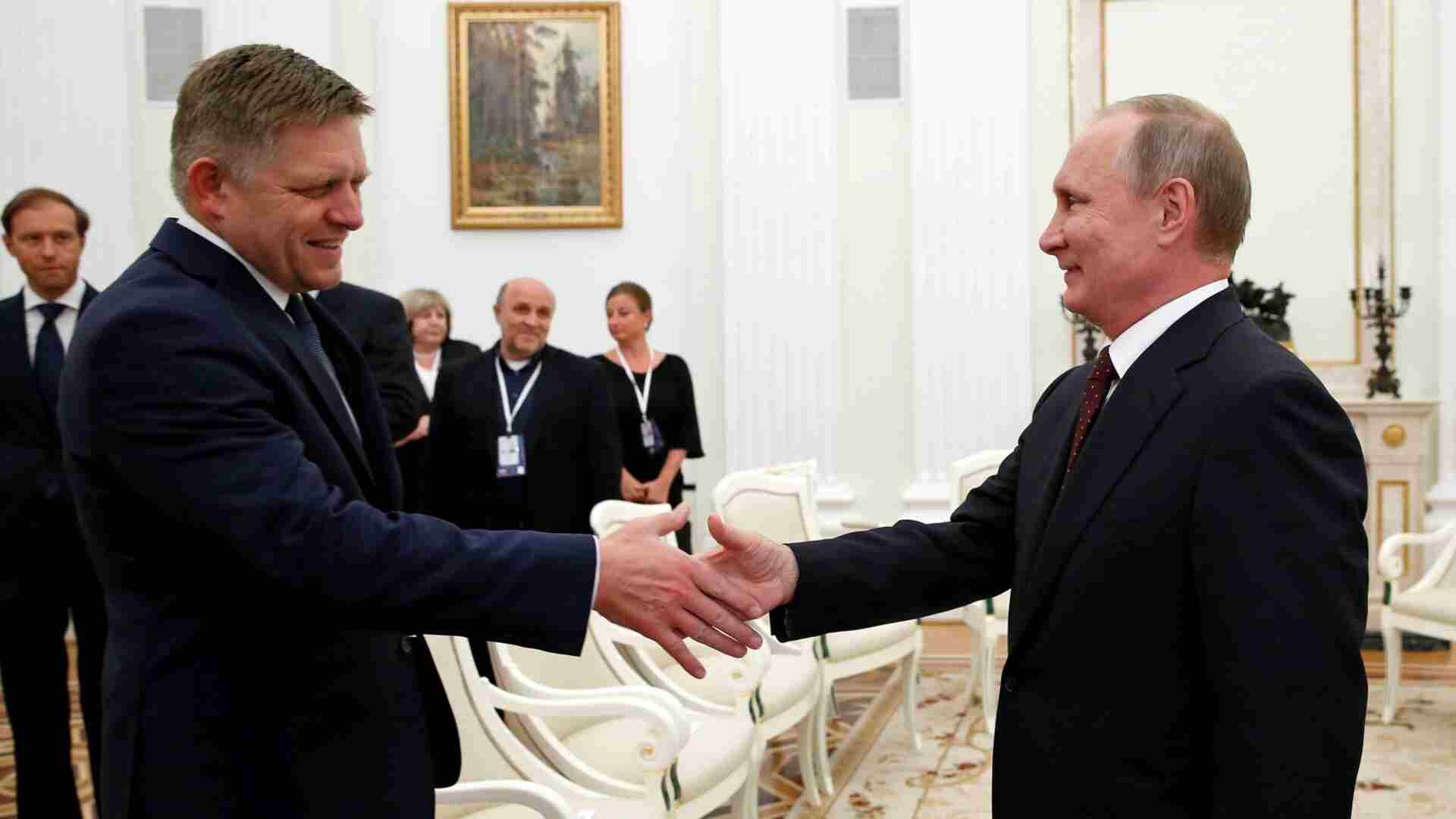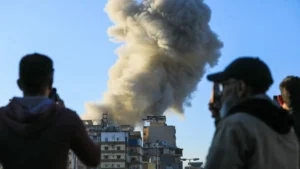Israel and Hezbollah agreed to a ceasefire after 13 months of intense conflict on Wednesday. The agreement, brokered by the United States, is meant to bring an end to hostilities that escalated into full-scale war in September.
Details of the Ceasefire
The ceasefire started at 4 a.m. local time on Wednesday (7:30 a.m. IST). US President Joe Biden confirmed the deal, stating that it aims to be a “permanent cessation of hostilities.” In a joint statement with French President Emmanuel Macron, Biden added that the agreement “will create conditions to restore lasting calm” and allow people to return to their homes safely on both sides of the border.
Key Terms of the Agreement
The agreement calls for a 60-day halt in hostilities. During this period, Hezbollah must withdraw 40 kilometers from the Israel-Lebanon border. In return, Israel will fully withdraw from Lebanese territory. Once Hezbollah retreats, Lebanese armed forces will take control of the area. They will ensure Hezbollah’s weapons are removed and prevent rearming, according to BBC reports.
Lebanon will deploy 5,000 troops to the south. United Nations peacekeepers and a multinational committee will oversee the process, making sure Hezbollah doesn’t rearm.
Background: UN Security Council Resolution 1701
The ceasefire is based on UN Security Council Resolution 1701, which ended the 2006 Israel-Hezbollah war. This resolution calls for the demilitarization of southern Lebanon, monitored by the Lebanese army and UN peacekeepers. Both Israel and Hezbollah have accused each other of violating the terms of the resolution. Israel claims Hezbollah built infrastructure in the area, while Lebanon says Israel’s military planes violated its airspace.
Reactions to the Ceasefire
Israel’s PositionIsrael’s security cabinet approved the deal with a 10-1 vote. Prime Minister Benjamin Netanyahu expressed gratitude for the US’s help but emphasized Israel’s right to defend itself. “If Hezbollah violates the agreement and tries to arm itself, we will attack,” he said.
Prime Minister Benjamin Netanyahu spoke this evening with US President Joe Biden and thanked him for the US involvement in achieving the ceasefire agreement in Lebanon and for the understanding that Israel maintains freedom of action in enforcing it.
— Prime Minister of Israel (@IsraeliPM) November 26, 2024
Lebanon’s Response
Lebanon’s caretaker Prime Minister Najib Mikati welcomed the ceasefire, calling it a crucial step for stability. Hezbollah also accepted the deal but insisted that Lebanon’s sovereignty must be respected. “We want an end to the aggression, of course, but not at the expense of the sovereignty of the state,” said Hezbollah’s deputy political council chair, Mahmoud Qamati.
Global Reactions
US President Biden’s Remarks
President Biden praised the decision, calling it a sign that peace is possible. He added that Israel will gradually withdraw its forces over the next 60 days, allowing civilians on both sides to return to their homes and rebuild.
Read: “Good News”: Joe Biden Hails Israel-Hezbollah Ceasefire Deal
Today, I have good news to report from the Middle East.
I have spoken to the Prime Ministers of Lebanon and Israel. And I am pleased to announce:
They have accepted the United States’ proposal to end the devastating conflict between Israel and Hezbollah.
— President Biden (@POTUS) November 26, 2024
UK and France’s Support
UK Prime Minister Keir Starmer welcomed the ceasefire, calling it “long overdue” and offering relief to those suffering in Lebanon and Northern Israel. French President Macron, in a joint statement with Biden, said the ceasefire would end the fighting in Lebanon and protect Israel from the threat of Hezbollah and other terrorist groups.
Read: UK PM Starmer Supports Ceasefire, Calls for Sustainable Peace
This ceasefire marks a crucial moment in the conflict. However, its success will depend on how well both sides implement the terms in the coming weeks.











